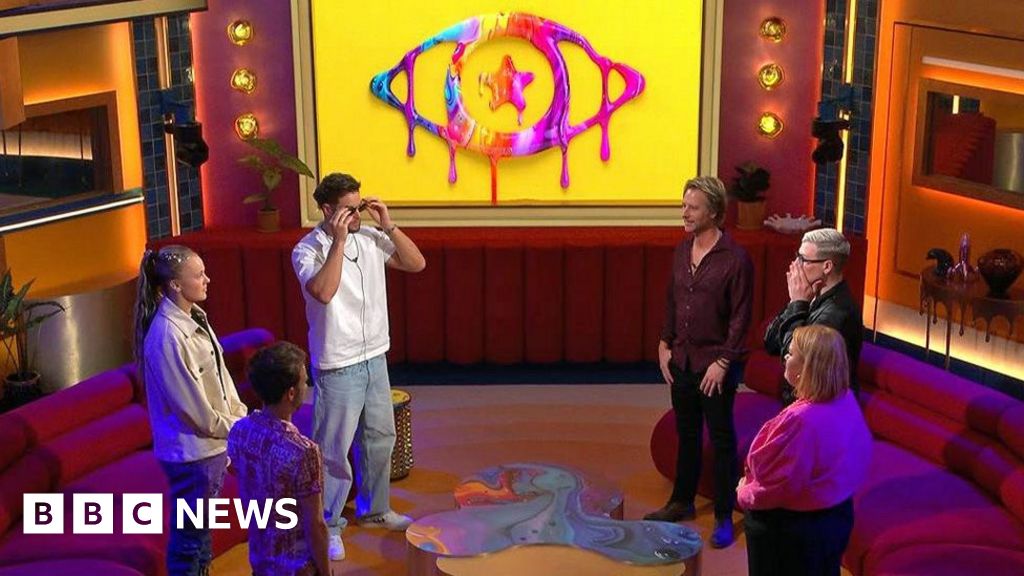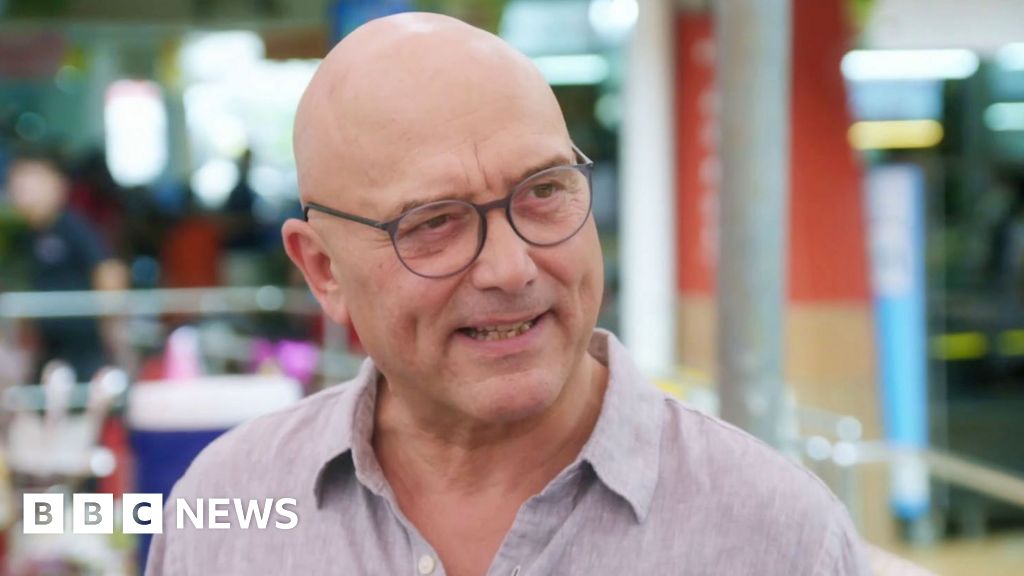ARTICLE AD BOX
By Katie Razzall
Culture editor
Image source, Getty Images
Image caption,Dame Maureen Lipman: "Sooner or later the cancellers will win"
Dame Maureen Lipman has said comedy is in danger of being "wiped out" due to fears over being cancelled.
She told the BBC she believes comedians are now so worried about offending, "a revolution" is taking place.
"It's in the balance whether we will ever be funny again," she said.
Her comments come as more than half of Britons say they have stopped themselves from expressing political and social views for fear of being judged.
A YouGov poll seen exclusively by the BBC found 57% of those asked said they censor themselves on issues including immigration and trans rights, particularly if their views are deemed at the less politically correct end of the spectrum.
YouGov questioned 1,677 people in mid November to find out their views on what's become known as "cancel culture".
It is a term, first used in the US, to describe attempts to block or "cancel" people or groups with certain viewpoints.
While only a third (35%) of those polled said they knew what cancel culture was, many more effectively said they felt cancelled from time to time.
The less politically correct the views held, the more likely people were to say they feel shouted down.
They are most likely to keep quiet about what they really think when they are with people they've just met (49%) or are at work (40%), according to the data. A third (31%) also self-censor with friends, a fifth (21%) with family.
Image source, Getty Images
Image caption,Russell Kane says it's "complete nonsense" that comedians are sacrificing being funny for fear of cancellation
The cultural world often reflects what's happening in real life.
I met Dame Maureen in Manchester, where she was filming Coronation Street. She told me: "Cancel culture, this cancelling, this punishment, it's everywhere. Punishment. An eye for an eye. 'You said that, therefore you must never work again.' Sooner or later the cancellers will win."
She highlighted the world of comedy, which she claims is in danger of being "wiped out" because comedians fear audiences will take offence so they tone down their material.
It's a dramatic prediction. "Something has to be forbidden to make you laugh, really belly laugh. It's when you shouldn't be laughing," she said. "All the things that have been cancelled out by being correct are, I'm afraid, all the things that make people laugh."
But is she right? Many comedians say their industry is in fine - and funny - form. Nobody is being censored, they claim. And in the end, it is audiences who decide what's funny and what's offensive.
Take comedian Russell Kane, who knows a thing or two about cancellation. He presents Radio 4's Evil Genius, which each week takes a different figure from history and decides, based on their actions, whether they should be saved or cancelled.
Image source, Getty Images
Image caption,Services such as TweetDelete can reduce the chances of someone being cancelled for previously expressed opinions
He told me it's "complete nonsense" that comedians are sacrificing being funny because they don't want to be cancelled.
"I don't think anyone is saying you can't be offended, nobody is saying that, what we're saying is you can't use hate speech that would prompt a gender-related crime, a sex-related crime or a race-related crime."
"There's been a massive, much needed shift in the conversation around gender, around men's attitudes to women, around consent. Society has moved on."
However, he does think he and his fellow comedians worry about being cancelled for things they might have said in the past which have since become less acceptable. "I signed up for a website called TweetDelete and all my posts that are older than six months have gone. It's a bit of self-protection."
'Divisions are being exacerbated'
The whole issue of "cancel culture" and whether it really exists is contentious.
In one corner are those who claim that a new, judgmental world exists, particularly on social media, which leads to censorship and puts freedom of speech under attack.
Recently, London's Old Vic theatre announced it would not be staging a planned production of Sondheim's Into the Woods, co-directed by Terry Gilliam.
The former Monty Python star claimed on social media that the Old Vic was "intimidated" into cancelling the show by what he called "a small group of closed-minded, humour averse ideologues" because, he said, he recommended his Facebook followers watch a show by the comedian Dave Chappelle.
Image source, Reuters
Image caption,Dave Chappelle was criticised by some for his comments on trans issues
Chappelle has been accused of making anti-transgender comments in a Netflix special.
The Old Vic says the decision not to put on Into the Woods was "mutually agreed" and wished the show "well for its future life". The musical will now open at the Theatre Royal in Bath instead.
In the other corner of the debate are those who argue that calling people out for views that are deemed offensive is a form of social justice.
They point out that the people who complain about being cancelled are very often celebrities with huge platforms to air their views and while they still have their voices listened to, it's the opposing arguments that have for too long gone unheard. They say this is about creating a kinder, more tolerant world.
The Harry Potter author JK Rowling is the most high-profile celebrity to find her views under attack. She has been accused of transphobia by those who say her views discriminate against trans people. She says she is "speaking up for women's sex-based rights".
According to those polled by YouGov, nearly a third (29%) of people who hold gender critical views said they always or mostly don't say what they really think when they are talking about this controversial topic.
Other difficult areas where the people polled said they don't speak freely are those who believe immigration has been a bad thing for the UK (one third - 33% - of people who held that view said they keep quiet about it).
Image source, PA Media
Image caption,Author JK Rowling is one of the most high-profile people to have been caught in the so-called culture wars
A fifth of people who believe women have things as good as men in the UK feel they can't say it.
I asked Russell Kane specifically about the poll's findings.
"I don't believe freedom of speech is under threat," he said. "Why would we want to use hateful language? Why should we tolerate it? I think there's a lot of people with much more extreme views, illegal views, hate crime provoking views, who are driving this narrative that those with moderate concerns about immigration, for example, can't say it."
He believes it's being driven by people on the right and left, who are "trying to create culture wars at either end of the spectrum".
Simon Fanshawe co-founded Stonewall, though he has been publicly critical of the LGBTQ+ charity's current approach to campaigning. He has recently published a book, The Power of Difference, and believes we are facing a crisis of dialogue.
He told the BBC: "At Stonewall, we only ever talked to people we didn't agree with. When somebody says something, you need to argue with it even if you think it's offensive or damaging or hurtful. That's the only way to get them to change their minds.
"What the poll is telling us is that the inability to discuss differences is seeping into every area of our lives. Even with friends, a third don't express their opinions. Divisions are being exacerbated. We need to try and bridge those divides."
The consequences for society are difficult to measure, especially when cancel culture and censorship have become political pawns in a polarised debate.
Much of the argument is around whether freedom of speech is under attack from a new "woke" agenda. YouGov's poll suggests younger generations particularly prioritise preventing hateful offensive speech over being able to say what you want.
These tensions get to the heart of the so-called culture wars. Some will argue people are being silenced, others that outdated views are simply being weeded out, in real life and in comedy too.
Ricky Gervais has joked that the woke generation will eventually in turn be cancelled by the next generation
Comedian Ricky Gervais recently said: "I want to live long enough to see the younger generation not be woke enough for the next generation. It's going to happen. Don't they realise that, it's like, they're next. That's what's funny."
The YouGov poll shared with the BBC suggests younger people are more confident their views won't age than older respondents.
While nearly half (47%) of the oldest Britons expect future generations to take a dim view of some of their views, only one in three (36%) 18-24 year olds feel the same way.
Will they be proved right - or will Ricky Gervais have the last laugh?

 3 years ago
50
3 years ago
50








 English (US) ·
English (US) ·